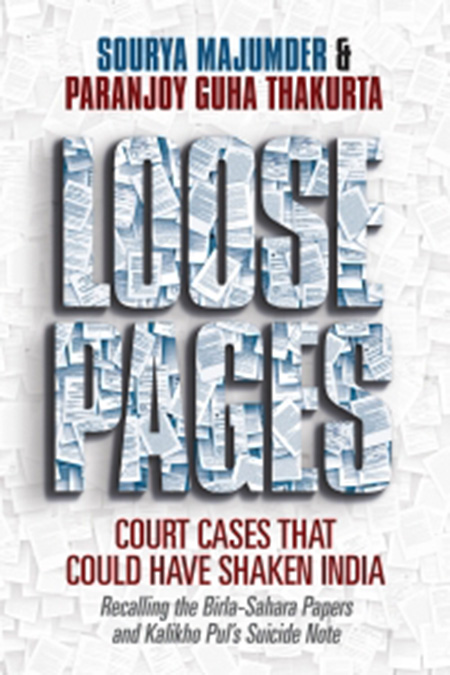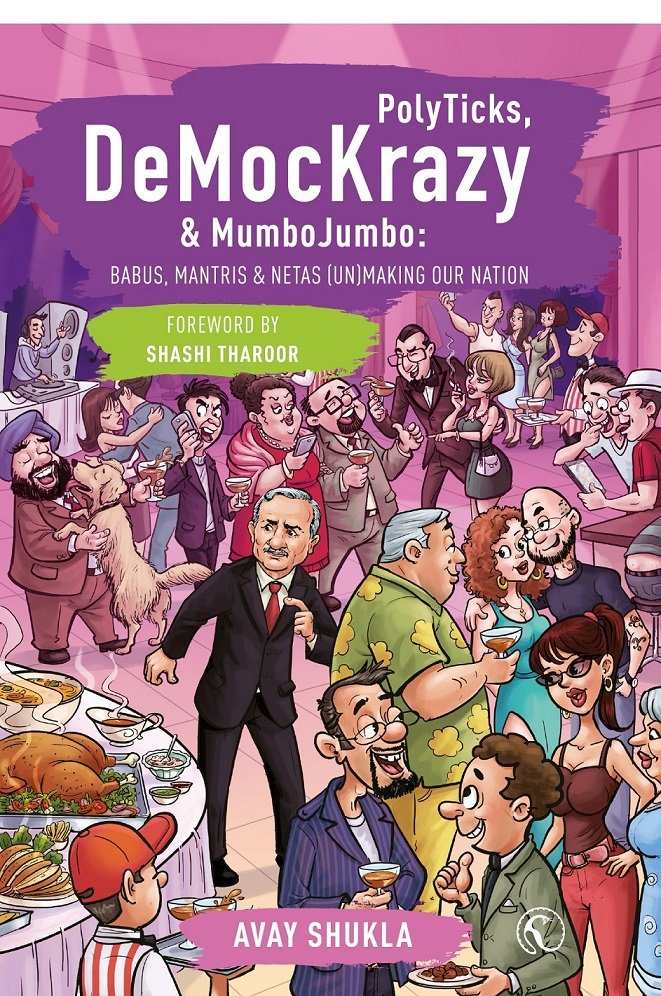Arvind Kejriwal put it rather bluntly when he asked rhetorically: Who’s running the country, Manmohan Singh or Mukesh Ambani? After a long time, the question was posed in a manner that laid bare the ugly nexus between politics and business – the nexus which is at the root of much of the corruption that is widespread in India today and which is responsible for the ugly underbelly of economic liberalisation, that is, brazen forms of crony capitalism.
That Kejriwal’s statements could not be ignored by the mainstream media which is, more often than not, beholden to big business, is significant. Behind the dark clouds of gloom enveloping the country’s political economy, there are silver linings of hope. What happens is, the arrogance of those in positions of power and those with unparalleled personal wealth sometimes degenerates into stupidity or worse, self-destructive action. This is exactly what happened in August 2011 when a coterie of Union Ministers decided that Anna Hazare should be arrested (thus making him into a super-hero) and then sought to pass the blame on to the Delhi police.
Consider what happened more recently. On 28 October, Sudini Jaipal Reddy was unceremoniously “kicked upstairs” from the post of Union Minister of Petroleum and Natural Gas which he held since January 2011, and was made Minister of Science and Technology. Had the government been a bit smarter, he would have been “promoted” for the “good work” he is supposed to have done and elevated, for instance, to the Ministry for Human Resources Development – a position formerly held by Kapil Sibal and now held by M.M. Pallam Raju, who is relatively inexperienced (in comparison with Jaipal Reddy) and who is known to be close to Congress General Secretary Rahul Gandhi.
How did the goof-up happen? The most powerful person in the country (which the Prime Minister is supposed to be but in this case is, Sonia Gandhi) and India’s richest man Mukesh Ambani could not have played their cards in a worse manner. Choosing the members of his Cabinet and the Council of Ministers is meant to be the prerogative of the Prime Minister. In this instance, a distinct impression was conveyed that Dr Manmohan Singh had removed Jaipal Reddy because he was at loggerheads with RIL.
In the process however, the government may have shot itself in the foot. Instead of promoting Ambani’s interests (which Jaipal Reddy allegedly refused to), it may have done just the opposite. Given the fact that a huge hue and cry was raised by Kejriwal and his fellow-activist Prashant Bhushan, the newly-appointed Petroleum Minister Veerappa Moily will find it extremely difficult to quickly accede to RIL’s demands for a higher administered price of gas extracted from the Krishna-Godavari (KG) basin in the Bay of Bengal off the eastern coast of India. RIL will also find it rather tough to wriggle out of its present situation, in which not only its accounts but its performance will continue to be critically scrutinized by the Comptroller and Auditor General of India, a Constitutional authority. (Incidentally, the CAC is not answerable to the government but to the Parliament.)
What is worse for the Prime Minister and Mukesh Ambani is that the set of controversies surrounding the implementation of the production sharing contract between the Ministry of Petroleum and Natural Gas and RIL, and the fall in gas output from the KG basin have been converted into a high-profile public debate on the issue of crony capitalism by the “India Against Corruption” movement. The political pitch has been raised to a much higher level. The alleged favours bestowed on RIL by the government have gone way beyond a complex technical discourse that was confined to the chattering classes of Delhi and Mumbai and amongst those who read the pink papers.
The CAG has categorically pointed out that the contract that had been signed between RIL and the Petroleum Ministry was heavily loaded in favour of the former and against the interests of the government. The CAG has stated that it suspected RIL of “gold-plating” or deliberately inflating capital expenditure to increase its profits and thereby, simultaneously lowering the flow of revenue that would have otherwise accrued to the national exchequer. It further highlighted several infirmities and anomalies in the manner in which the company had awarded contracts to particular parties, even as RIL stubbornly opposed disclosing all its records to the CAG, claiming that the Constitutional authority had no right to examine its books of accounts – a claim that was over-ruled.
Under former Petroleum Minister Murli Deora, RIL had a ball. It could afford to ignore its critics such as Tapan Sen, MP, belonging to the Communist Party of India-Marxist, who wrote a series of letters to the Prime Minister arguing that the production sharing contract between the company and the government was deeply flawed and therefore, causing huge losses for the country. Many facts were revealed because of the sibling rivalry between Mukesh Ambani and his younger brother Anil.
The government asked Deora to “retire” gracefully in January 2011 and Jaipal Reddy was brought in, ostensibly to clean up the mess left behind. Within weeks, it became evident that he would not kowtow to Ambani and senior executives of RIL’s partner British Petroleum. Under him, the Petroleum Ministry claimed that RIL had deliberately reduced gas output in anticipation of higher prices and that the precipitous fall in gas production from the KG basin was exacerbating the already acute energy shortage in the country.
RIL, on the other hand, argued that the sharp drop in the gas extracted from the KG basin (by around three-fourths from the peak level) was due to geological complexities and ingress of water and sand. The Ministry refused to buy these arguments. In turn, the company claimed the government was sitting on its investment plans. And the Ministry counter-alleged that the company had not dug the number of wells it said it would. What certainly did not help RIL’s case was that a pliant former regulator, Director General of Hydrocarbons V.K. Sibal (who is currently facing criminal charges of favouritism and bribery) was replaced by an upright technocrat.
Unlike his predecessor Deora who was a staunch Ambani loyalist, Jaipal Reddy carefully covered his tracks and put everything down on paper. He and a group of trusted bureaucrats calculated the potential loss to the country, should gas prices be hiked to the level asked for by RIL – the figure ran to over $ 6.3 billion. Information was selectively leaked from Jaipal Reddy’s office. Kejriwal and Bhushan went a step further. They played out a recorded conversation between lobbyist Niira Radia and Ranjan Bhattacharya, foster son-in-law of Atal Behari Vajpayee, in which Ambani is heard telling Bhattacharya that the Congress party was akin to his shop (apna dukan), metaphorically in his pocket.
The two anti-corruption activists successfully connected the dots by linking the higher price of gas demanded by RIL to the rise in electricity charges and fertilizer prices. The point that has been driven home is simple: corruption and inflation are indeed interlinked


